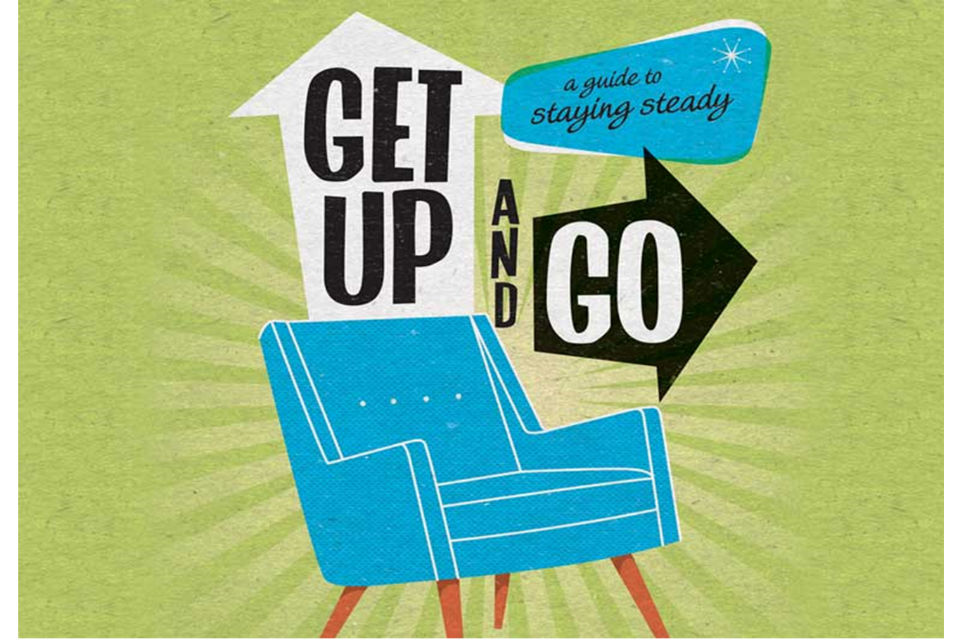Some Known Questions About Dementia Fall Risk.
Table of ContentsNot known Details About Dementia Fall Risk Dementia Fall Risk Fundamentals ExplainedA Biased View of Dementia Fall RiskFascination About Dementia Fall RiskDementia Fall Risk Things To Know Before You Buy
Evaluating fall risk aids the whole health care group develop a safer environment for every individual. Ensure that there is a designated location in your clinical charting system where team can document/reference scores and record pertinent notes connected to fall prevention. The Johns Hopkins Loss Danger Assessment Device is just one of lots of tools your team can utilize to help protect against negative medical occasions.Client falls in medical facilities are usual and incapacitating adverse events that linger in spite of years of effort to lessen them. Improving communication throughout the assessing nurse, treatment team, individual, and patient's most included loved ones may enhance loss prevention efforts. A group at Brigham and Female's Healthcare facility in Boston, Massachusetts, looked for to develop a standardized loss prevention program that centered around enhanced interaction and patient and household involvement.

The advancement group emphasized that successful application relies on client and team buy-in, integration of the program into existing operations, and fidelity to program processes. The team kept in mind that they are grappling with exactly how to make certain continuity in program application throughout durations of crisis. During the COVID-19 pandemic, for instance, a rise in inpatient falls was connected with constraints in person engagement together with constraints on visitation.
See This Report on Dementia Fall Risk
These cases are generally thought about avoidable. To execute the intervention, organizations need the following: Access to Fall suggestions resources Fall TIPS training and retraining for nursing and non-nursing staff, consisting of new nurses Nursing workflows that allow for patient and family involvement to perform the drops evaluation, guarantee use of the avoidance strategy, and carry out patient-level audits.
The outcomes can be very destructive, often increasing individual decline and causing longer hospital keeps. One research estimated stays raised an extra 12 in-patient days after a client fall. The Fall TIPS Program is based upon engaging individuals and their family/loved ones across three main procedures: evaluation, individualized preventative treatments, and auditing to ensure that people are engaged in the three-step loss avoidance procedure.
The individual assessment is based upon the Morse Fall Range, which is a validated loss risk analysis tool for in-patient hospital setups. The range includes the 6 most common factors patients in hospitals fall: the person autumn background, high-risk conditions (consisting of polypharmacy), use of IVs and various other external gadgets, psychological condition, stride, and movement.
Each threat element web links with several actionable evidence-based treatments. The registered nurse creates a strategy that includes the interventions and shows up to the treatment group, client, and family members on a laminated poster or published visual aid. Registered nurses create the plan while consulting with the person and the patient's household.
Some Known Details About Dementia Fall Risk
The poster works as an interaction tool with other members of the person's treatment group. Dementia Fall Risk. The audit element of the program includes assessing the patient's knowledge of their risk aspects and prevention plan at the device and healthcare facility levels. Nurse champs carry out at least five specific meetings a month with clients and their families to look for understanding of the loss prevention strategy

An approximated 30% of these drops lead to injuries, which can vary in extent. Unlike various other unfavorable events that call for a standard medical response, loss prevention depends highly on the demands of the individual. Including the input of individuals that know the patient ideal permits greater modification. This strategy has proven to be extra reliable than autumn prevention programs that are based largely on the production of a risk rating and/or are not customizable.
Unknown Facts About Dementia Fall Risk

Based on bookkeeping outcomes, one site had 86% compliance and 2 websites had over 95% compliance. A cost-benefit analysis of the Loss TIPS program in eight healthcare facilities approximated that the program cost $0.88 per person to implement and led to financial savings of $8,500 per 1000 patient-days in straight costs connected to the avoidance of 567 tips over 3 years and 8 months.
According to the innovation team, organizations thinking about applying the program should conduct a you can try these out readiness evaluation and falls prevention spaces evaluation. 8 Furthermore, companies must make certain the essential infrastructure and workflows for implementation and develop click resources an implementation plan. If one exists, the organization's Fall Prevention Job Pressure should be associated with preparation.
Dementia Fall Risk Things To Know Before You Buy
To start, organizations ought to ensure conclusion of training components by nurses and nursing assistants - Dementia Fall Risk. Hospital team must evaluate, based on the demands of a health center, whether to utilize an electronic wellness document printout or paper variation of the fall avoidance plan. Applying groups should hire and train registered nurse champions and establish processes for auditing and reporting on fall information
Personnel require to be associated with the process of upgrading the workflow to involve clients and family members in the evaluation and avoidance plan procedure. Systems needs to be in location so that devices can understand why an autumn occurred and remediate the cause. Extra specifically, registered nurses should have networks to provide continuous responses to both staff and system management so they can adjust and enhance loss prevention process and connect systemic problems.
Comments on “How Dementia Fall Risk can Save You Time, Stress, and Money.”